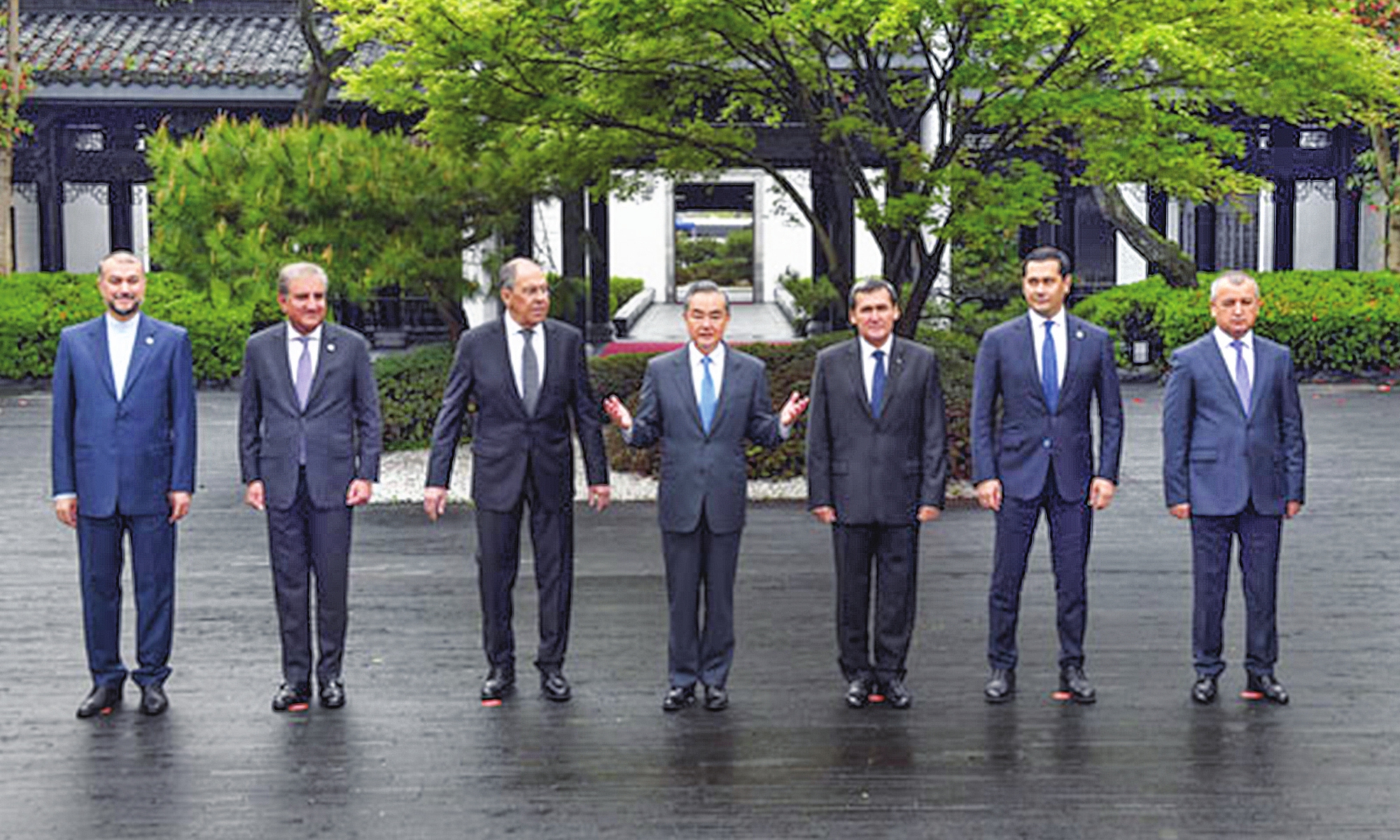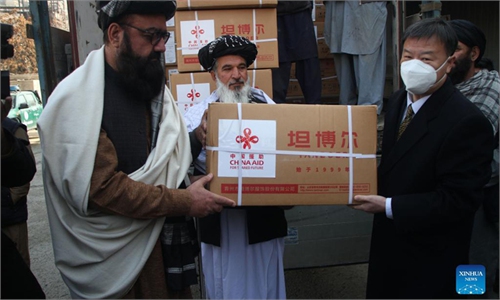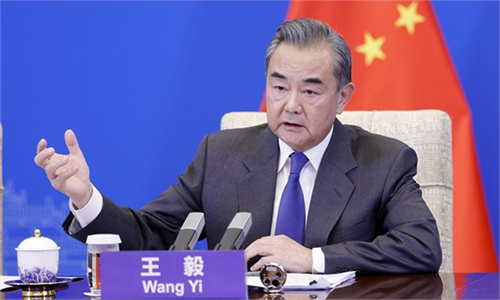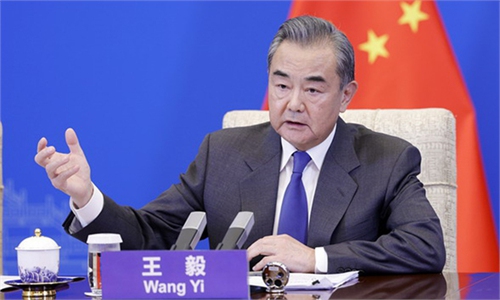
Chinese State Councilor and Foreign Minister Wang Yi (center) stands with officials from Afghanistan's neighboring countries and the Afghan Taliban as China-hosted talks on Afghanistan concluded in East China's Tunxi, Anhui Province on March 31, 2022. Photo: Chinese Foreign Ministry
Against the backdrop of the ongoing Ukraine crisis, the Third Foreign Ministers' Meeting among the Neighboring Countries of Afghanistan, hosted in Tunxi, east China's Anhui Province in late March, cast a light on the cloudy international horizon.
Foreign ministers or high-level representatives from China, Iran, Pakistan, Russia, Tajikistan, Turkmenistan, and Uzbekistan attended the meeting. The "neighboring countries of Afghanistan Plus Afghanistan" foreign ministers' dialogue, as well as a meeting of the "China-US-Russia+" consultation mechanism on the Afghan issue were also held.
The parties drafted a "Joint Statement of the Third Foreign Ministers' Meeting among the Neighboring Countries of Afghanistan" and "The Tunxi Initiative of the Neighboring Countries of Afghanistan on Supporting Economic Reconstruction in and Practical Cooperation with Afghanistan."
Judging from the outcome, the meetings can be described as a collective demonstration of Afghanistan's neighbors doing their best, pooling their resources, and coordinating to increase their support and assistance toward Afghanistan. After the US and NATO completed their hasty withdrawal of troops from Afghanistan in August 2021, the latter entered a transition period, attempting to end the chaos and resume governance.
Afghanistan's neighboring countries not only have to face the spillover effect of the Afghan mess left behind by the US-led NATO, but have also helped to clean up the mess left by NATO.
The eight-point consensus reached on the Afghan issue this time is a collection of all measures, ideas, and suggestions from Afghanistan's neighbors in terms of supporting peace and reconstruction in Afghanistan. It reflects the common political position shared by Afghanistan's neighbors. All parties pledged to support Afghanistan's economic reconstruction in areas such as humanitarian assistance, connectivity, economy and trade, agriculture, energy, and capacity building.
They also announced the launch of a mechanism for regular consultations among special envoys to Afghanistan from its neighboring countries and three working groups, namely political and diplomatic, economic and humanitarian, and security and stability, to follow up on the outcomes of the foreign ministers' meetings among Afghanistan's neighboring countries. These fully demonstrate the expectation of Afghanistan's neighboring countries' for Afghanistan to return to the Asian family as an equal member of the international community.
The series of meetings are comprised of features like collective efforts, coordination and cooperation, openness and inclusiveness, addressing both the symptoms and root causes of problems, and pragmatism and responsibility. It has become an effective exploration to solve regional and international hotspot issues with complex historical backgrounds. It has nothing to do with geopolitical games and focuses only on pragmatic cooperation. It advocates for equality and volunteerism rather than confrontation. There was no high-profile empty talk, but practical results. It was not about dividing the world into different camps, but about boosting regional connectivity.
This series of meetings is in stark contrast to pseudo-multilateralism that conspires to harm other countries and stir up tensions through "closed-door diplomacy."
After the 20-year war in Afghanistan, the US and its NATO allies completely abandoned the Afghan people, refused to maintain constructive communication with the Afghan interim government, frozen and confiscated the assets of the Afghan people, and tried to denounce their responsibility for peace and reconstruction in Afghanistan.
Such behavior is completely untenable, both in terms of morality and international law. Some US politicians even brazenly claimed that the reason why the US abandoned Afghanistan while disregarding of its commitments is because the US must stop the bleeding and preserve its national strength so as to better concentrate its energy and resources to contain China. This selfish geopolitical calculation completely destroyed the US' image as a "benevolent power," trumpeted by the politicians.
At present, diplomatic recognition is a major concern for the Afghan interim government and a common concern for the international community. It is also one of the expectations held by the Afghan people after years of war and chaos.
As a traditionally friendly neighbor to Afghanistan, China always believes that Afghanistan should not become a failed state, let alone be excluded from the international community. Afghanistan has suffered for many years and has fallen behind the rest of the world in development. The situation should not continue.
Rationally, a stable and functioning Afghan government is an essential part in the international community's assistance to Afghanistan for the latter to overcome the humanitarian crisis, provide basic public services to the Afghan people, and kick start the process of national reconstruction.
The US and NATO have been causing damage in Afghanistan for 20 years, but they have only left behind humanitarian disasters. The international community should focus on solving the humanitarian disaster in Afghanistan, start the reconstruction there, and prevent Afghanistan from becoming a haven for violent terrorist extremists again, providing the Afghan interim government an opportunity to serve the Afghan people, and empower the Afghan people to take their own future in hand and explore a development path that suits the country's conditions.
On Afghanistan's path of returning to the mainstream international community and resume peaceful development and good neighborly relations, Tunxi is undoubtedly an important stop.
The author is director of the Department for Asia-Pacific Studies at China Institute of International Studies. opinion@globaltimes.com.cn



